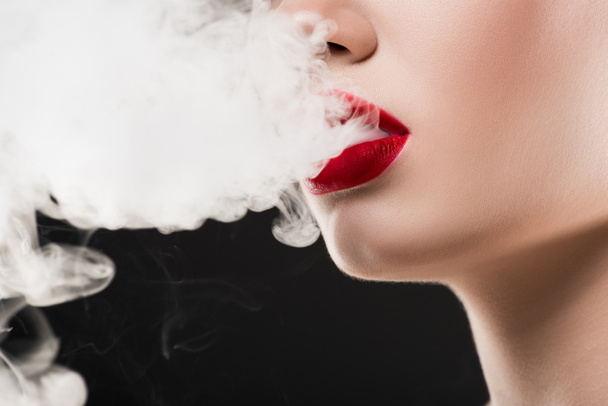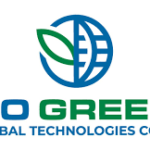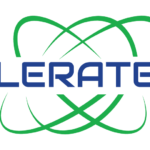Crack down by Big Tobacco, FDA and ITC on illicit vapes and e-cigarettes imports portends increased market share and revenues for legitimate, authorized brands
BY: Brian Connell, CFA
The U.S. Food and Drug Administration has established a regulatory framework for evaluating and approving vapes and e-cigarettes for sale in the U.S. They did this to control the quality and composition of nicotine-containing e-liquids, to ensure that vape and e-cigarette hardware was safe to use, and to prevent marketing practices geared toward underage youthful consumers.
FDA authorization requires that manufacturers complete exhaustive studies that demonstrate compliance with FDA regulations, and when they do, the FDA grants them the right to legally sell their products. This system protects American consumers while also preventing underage would-be users from becoming addicted to nicotine at a young age.
During the last few years, the U.S. vape and e-cigarette market has been flooded with primarily, illegal Chinese vapes and e-cigarettes in all shapes and sizes. Many of these target youthful users, and all of them use unknown and potentially dangerous e-liquids that may harm consumers. And none of them have been approved by the FDA. That’s right, most of the popular vapes and e-cigarettes seen on the market today are illegally imported from China, illegally distributed throughout the United States, and illegally sold to both adults and minors. And despite FDA rules to the contrary, this has been going on for years.
Enforcement pressure is coming
FDA enforcement in this industry has thus far been a spectacular failure, and for a variety of reasons. For one thing, there is strong consumer demand for flavored vapes and e-cigarettes that taste good, especially among consumers in their teens and twenties, and in the U.S. only tobacco and menthol flavored devices have as of yet been approved[1].
Another reason is cost. In general, the illicit Chinese imports are far less expensive than the FDA-compliant devices available for sale, and most consumers would rather pay less for a product they believe is just as safe and good as any other.
A third reason is the sheer size of the market, which has been a complete mismatch for the enforcement resources of the FDA. But perhaps most importantly, the FDA doesn’t currently have the power to do much more than send out non-compliance warning letters and in some cases levy relatively minor fines on violators.
Illicit brands are about to be a thing of the past
This has been the sad state of affairs in the U.S for quite some time. Illicit brands such as Breeze, Elf Bar, Esco, Hyde, Puff Bar and others hold a large percentage of U.S. market share, doing immeasurable harm to consumers and to the compliant companies whose market shares they have stolen in the process.
Furthermore, the glut of these cheap products has substantially reduced the profits of FDA-compliant manufacturers, which have had to bear the time costs and financial burden of complying with FDA-mandated scientific and marketing studies while simultaneously reducing their prices to retain whatever market share they could. However, the current situation is about to change.
Here’s the good news for “Compliant Companies.”
The interests of the FDA and “Big Tobacco” now seem to be aligned, albeit for different reasons. Both want to stop the flow of illicit vape and e-cigarette products into the United States as quickly as possible. So do the individual states, which derive a significant portion of their sales tax revenues from sales of legal vapes and e-cigarettes – but not from unreported sales of illicit products. And so do the major distributors and retailers, which typically share pro-rata in retail sales prices and reputationally benefit from selling only FDA-approved products.
The simple fact is, stopping the influx of these illicit products is good for business… and Big Tobacco knows this
Although it is doubtful that we will ever see all illicit vape and e-cigarette products completely absent from the U.S. market, I do believe that we are on the cusp of seeing much stronger enforcement occur based on the actions of both government agencies and large corporations. Two corporations in particular are leading the charge to stop all illicit vape and e-cigarette imports: NJOY LLC, a wholly owned subsidiary of Altria Group (MO – NYSE), and Reynolds American (RAI – NYSE).
NJOY has recently brought sweeping litigation in California against 34 foreign and domestic manufacturers, distributors, and online retailers of illicit e-vapor products that are being unlawfully marketed and sold in the U.S. This suit seeks a nationwide injunction against the import, marketing, and sale of these illicit products and significant compensatory and punitive damages. If successful, the courts’ judgement in this case will represent a very significant milestone in greatly reducing illicit e-vapor imports.
Reynolds American’s parent company and tobacco industry giant R.J. Reynolds has taken a different tactic towards achieving a similar result, by filing a complaint with the U.S. International Trade Commission (ITC) on October 13th. This complaint charges multiple manufacturers, distributors, and retailers of the most popular disposable vapes with “unfair imports.” RJR is asking the ITC to issue an exclusion order that prevents further imports of these products and a cease and desist order to all accused parties that would prohibit them from ever importing, distributing, or selling any of these products in the future.
The ITC has real teeth
The ITC typically takes approximately one year to rule on such cases, although if the accused are slow in responding to the ITC inquiry, they can fast-track a ruling in 180 days. If successful, this action would also be very significant in that it could stop many illicit imports at the border, thus preventing them from ever entering the U.S. market.
The FDA will have a positive effect too
The FDA has also stepped up its enforcement actions, having issued warning letters to over 3,000 retailers this year for selling unauthorized products, and has followed up with 825 civil money penalties to retailers who have not complied with the FDA’s regulations.
I believe that these actions are just the beginning of a crackdown on illicit imports that could very well last for at least the next two to three years. As these progress, we should see fewer and fewer illicit products for sale by U.S. retailers. I expect to see the large retailers and convenience store chains ban all illicit products from their stores relatively quickly, later to be followed by some of the smaller mom-and-pop gas stations and convenience stores.
Conclusion
The effects of this crackdown are likely to be extremely positive for FDA-compliant companies, which will simultaneously gain market share and pricing power, which could lead to increased revenues and profits. In particular, this will benefit the smaller companies like Kaival Brands Innovations Group, Inc. (KAVL: NASDAQ), which could see a very large uptick in sales and earnings over a relatively short period of time. For those readers who are also investors, this might be a very interesting time to place your bets.
__________________________________________________________________________________________
[1] Due to its victory in a court battle with the FDA for summarily denying its application for FDA approval without actually evaluating it on its merits, a small company called Bidi Vapor, LLC was at least temporarily granted the right to continue selling its flavored and unflavored products in the United States without being in violation of FDA rules. It sells these products exclusively through its sister company, Kaival Brands Innovations Group, Inc., a Nasdaq-listed public company.
Posted By: Research and Editorial Staff – MicroCap MarketPlace
____________________________________________________________________________________________________________________________________________






